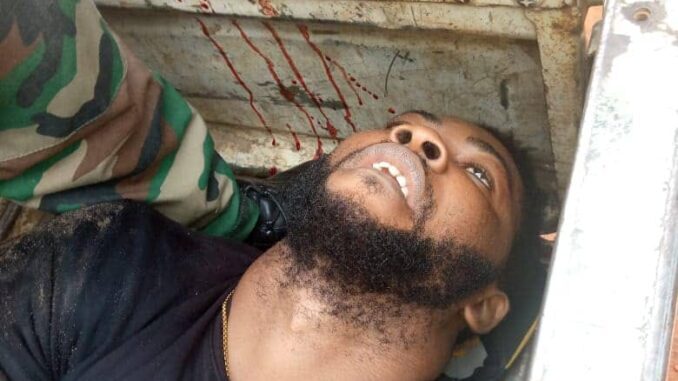
By Kabs Kanu
Whenever the possibility is discussed about Maada Bio being charged with human rights abuses when he leaves power, apologists scramble to play it down and assert that Bio has not reached the threshold of human rights abuses to warrant any such fate.
Nothing could be more deceitful. Well, for these apologists and sycophants who want to bury their heads under the sand, we will revisit the files of Amnesty International to remind ourselves about the atrocities Maada Bio has committed so far in Sierra Leone . Let’s go
———
SIERRA LEONE 2022
The right to freedom of peaceful assembly continued to be restricted and the use of excessive force by law enforcement officers was under investigation. The right to freedom of expression for government critics and opponents was repressed. Several laws were adopted to advance women’s rights. While efforts were made to decongest prisons, there were allegations of torture in one detention centre. Levels of food insecurity worsened. Legal regulation of the mining sector was strengthened.
Background
The constitutional review and voter registration processes in preparation for the 2023 presidential elections were ongoing. OHCHR, the UN human rights office, reassessed the Human Rights Commission of Sierra Leone (HRCSL) and gave it a Grade A status.
Freedom of assembly
The right to peaceful assembly continued to be restricted. The Public Order Act 1965 (under Part III, section 17) criminalized spontaneous assemblies. In July, police arrested over 50 protesters during a peaceful protest against the high costs of living and fuel, which the authorities had not authorized. The protesters were cautioned and released a few days later.
Excessive use of force
The HRCSL launched a public inquiry into the conduct of law enforcement officers in connection with human rights violations carried out between 2015 and 2021, including the excessive use of force and sexual misconduct. It held public hearings into the allegations but had not published its findings by the end of the year.
On 10 August, protests against high living costs turned violent in Freetown, the capital, and in the north, during which 27 protesters and six police officers died according to media reports. The president appointed a 15-person committee to investigate the incident but its report was not available by the end of the year.
The review of the Independent Police Complaints Board regulations of 2013 was still pending at the Ministry of Internal Affairs and the Office of the Attorney General at the end of the year. The review was considering recommendations as the basis of a proposed act which would strengthen the board with a view to regulating police violence.
Freedom of expression
In February, the deputy spokesperson for the opposition All Peoples’ Congress party was arrested for incitement and detained for two days, after he said on the radio that Sierra Leoneans should ensure the ruling party was voted out of power in 2023.
In May, the Sierra Leone Association of Journalists accused the government of using the offence of incitement to suppress freedom of expression.
In July, two political opponents were arrested for inciting an unlawful protest, after participating in a demonstration against the high cost of living. They were released without charge after four nights in detention.
Women’s and girls’ rights
According to the latest available statistics from UNICEF, 83% of girls and women (aged 15-49 years) had undergone female genital mutilation (FGM) and 30% of women (aged 20-24 years) had been married before the age of 18. In June, the minister of gender and children’s affairs stated that the government would amend the Child Rights Act to outlaw early forced marriage and FGM against minors. In July, an FGM practitioner was charged with manslaughter in Moriba town after a 21-year-old woman died a day after the practitioner performed FGM on her.
In August, the Customary Land Rights Act, which gives women an equal right to own and use family land, was enacted. In the same month, the National Land Commission Act was introduced, which established a commission that will take a gender-sensitive approach to land administration.
In September, the president signed the Public Election Bill 2022 into law, which stipulated that one in three parliamentary candidates be women.
In November, the Gender Equality and Women’s Empowerment bill was passed by parliament. It included a provision stipulating that 30% of all positions in government, and in companies with at least 25 employees, be reserved for women.
During the year, 800 children were reintegrated into schools nationwide, including pregnant girls, girls who had dropped out of school because of pregnancy, children with special needs, children living in remote areas and those from poor families.
Detainees’ rights
In an effort to decongest prisons, the judiciary held a national Judicial Week, following which, by 4 February, 374 detainees were granted bail and 234 were discharged across the country.
In June, the HRCSL requested a visit to “Benghazi” detention centre in Freetown where detainees who had criticized the president were allegedly subjected to torture and other ill-treatment, but by the end of the year the request had not been approved.
Right to food
In August, a food security analysis conducted by the Ministry of Agriculture with the World Food Programme revealed that food insecurity had worsened and over 1 million people faced severe hunger.
Corporate accountability
In March, the Ministry of Mines and Mineral Resources wrote to the Meya Mining company, seeking a response to Amnesty International’s conclusions regarding the human rights impact of its operations in the Kono district.1
In August, the government enacted the Mines and Minerals Development Act 2022, which sought to improve the socio-economic benefits of mining projects for the country and increase transparency in the management of the sector.
Sierra Leone: Seven months after August’s protests which turned violent in some locations, no justice yet for those injured or the families of those killed
Even if facing violent protesters, law enforcement officials should only resort to the use of force when they have exhausted all other peaceful means of achieving their objectives. Any use of force must also be proportionate to the situation they face. In addition, Amnesty International calls on the Special Committee set up to investigate the events to do so promptly and impartially.
Samira Daoud, Regional Director for West and Central Africa, Amnesty International
Allegations of excessive use of force in Freetown and Makeni
On 10 August 2022 and the days that followed, security forces allegedly killed and wounded protesters and bystanders at demonstrations in Freetown, Makeni and Kamakwie. A man who witnessed the events in Freetown told Amnesty International how he discovered the body of his sister: “The police started to shoot randomly into the crowd. I was standing, I ran down to my house […] Around 10:00am my younger sister who lives with the one who died came running and told me our sister had been killed […] The first shot was on the left arm. The second one close to her collar bone […] She was bleeding a lot from the neck. There was blood everywhere.” He explained that his sister was not part of the protest and was in her house when she was shot.
Amnesty International also collected the testimony of the father of a 22-year-old woman who was not participating in the protest and yet was allegedly shot by security forces. He recalled: “my daughter was not part of the protest. She went to sell vegetable leaves.”
A member of staff from a hospital in Makeni witnessed on 10 and 11 August a total of 11 people severely injured including two men who had gunshot wounds from the back, a 16-year-old girl who was shot in the pelvic area and a man with a gunshot wound near his left eye.
A protester in Makeni told Amnesty International about the violence he experienced and what he witnessed on the day of the demonstrations. “I was arrested by [military] and handed over to the police. They used the butts of their guns, belts and protective helmets and started hitting me all over my body ….”
On the day of the protests, from 3:00pm, the authorities imposed a nationwide curfew. A young man from Makeni told Amnesty International that he was unaware of the curfew and was shot at by police while spending time with his friends: “We were just sitting around discussing as friends. It was not too long before a patrol team from the police came … They were shouting. They did not say anything to us. We started running away — I was shot in my right arm.”
A young man from Makeni
A few days after the protests, a man was killed in Makeni during a raid by security forces to arrest participants of the 10 August protest. According to the police, he was killed during crossfire. His brother told Amnesty International he visited the hospital where his brother’s body was being held, and confirmed from the pathologist’s statement that he had been shot from the rear:
“I asked for the report, but he [the pathologist] said he was not mandated to give the report, that it was sent to the Ministry of Internal Affairs. […] If it was a crossfire, he would have been shot from the front not the back.”
Need for effective and transparent investigations into excessive use of force and killings of all persons
On 24 August 2022, a Special Committee was set up by the government to investigate the events surrounding the demonstrations, but it is yet to share any findings from its investigations.
In parallel, according to the Inspector General of Police, arrests have been made over the killing of a police officer in Freetown and another officer in Makeni and in relation to cases of arson in Kamakwie. However, no official police investigation has been launched into the killings of protesters and bystanders.
“Amnesty International calls on the Sierra Leonean authorities and the Special Committee to carry out an independent, impartial and thorough investigation not only into the killings of police officers but also into the use of force by law enforcement, during and after the protests, that resulted in injury and death, and to ensure those responsible for unlawful killing, torture and other forms of ill-treatment face justice. Crucially, the findings of the Special Committee investigation must be made public for all to see,” said Samira Daoud.
Need for fair trials
According to the Inspector General of Police, 515 people were arrested following the protests on 10 August including about 200 for violating the curfew. The exact number of people remaining in detention is uncertain.
People arrested were prosecuted for offences ranging from malicious damage, arson, unlawful procession, riotous conduct, seditious behaviour to murder. According to testimonies received, some people detained were not able to see their lawyer until their trial and they were convicted solely on the testimony of the arresting officer without any further corroborating evidence. One of the detainees’ lawyers told Amnesty International: “Since 10 August, we have made several efforts as a team to visit them, but all efforts have been in vain. We have made efforts at the Criminal Investigations Department headquarters to see them, but we have not been given access. We tried at the correctional centre, but we were still not given access. Efforts were made by my elders, still no access. I only saw them a month later, in court, when they were charged.”
The Inspector General of Police said that those arrested had access to their lawyers. “The lawyers wanted to meet the clients alone, but we said the investigators had to be present. […] This was before the detainees made their statement.”
“Detainees should have access to counsel from the outset of their detention, including during questioning. Individuals must be given adequate time and facilities to communicate with their lawyer, in confidence,” said Samira Daoud.
Among similar cases Amnesty International collected, two women were arrested during the protests in Freetown while allegedly waiting at their place of business. According to their lawyer, the only evidence against them was the testimony of the arresting officer and that of two investigating officers who were not at the scene. Both received an 18-month custodial sentence, the maximum sentence for riotous conduct and disorderly behaviour. “All people arrested must have fair trials. The rights of the defence must be protected and judges in first instance and in appeal should not rely only on the testimony of the arresting officer for their judgment,” said Samira Daoud.
Victims’ families were not allowed to bury loved ones
A relative of one victim told Amnesty International that he struggled to identify the body of his sister when he was allowed to see her weeks after the events. “It took a month for us to go to identify the bodies. The Minister of Internal Affairs issued a press release to go to identify the bodies. People from the hospital also informed us. We went to see the bodies, but I saw nothing. The body was decomposed. I couldn’t identify […].”
On 17 October 2022, more than two months after the protests, the bodies of 27 people were buried in Waterloo. According to the government, a public burial was arranged for security reasons and the families agreed with this arrangement. Some family members, however, said they were not given any choice and were denied the opportunity to bury themselves their loved ones.
A relative of one victim told Amnesty International: “We asked if we could take her body for a proper burial because we are Muslims. [A doctor at Connaught Hospital] said we could not do it without government permission. They said they don’t give us the bodies for security reasons. They didn’t ask you if you agreed or not.”
“The authorities should ensure relatives of victims have easy access to the burial site of their loved ones,” said Samira Daoud.
“Considering the presidential election due to take place in June, the authorities should protect the rights to freedom of expression and peaceful assembly and ensure policing responds to international and national human rights norms. The Public Order Act 1965 should be amended to expressly include exemption from the prior notification requirement in the case of spontaneous assemblies.”
Background
On 10 August 2022, protests broke out in Freetown and other areas of the country amid mounting frustrations over the soaring cost of living. Some demonstrators called for President Bio to resign.

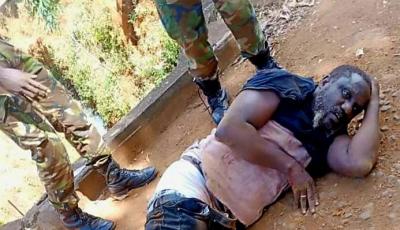
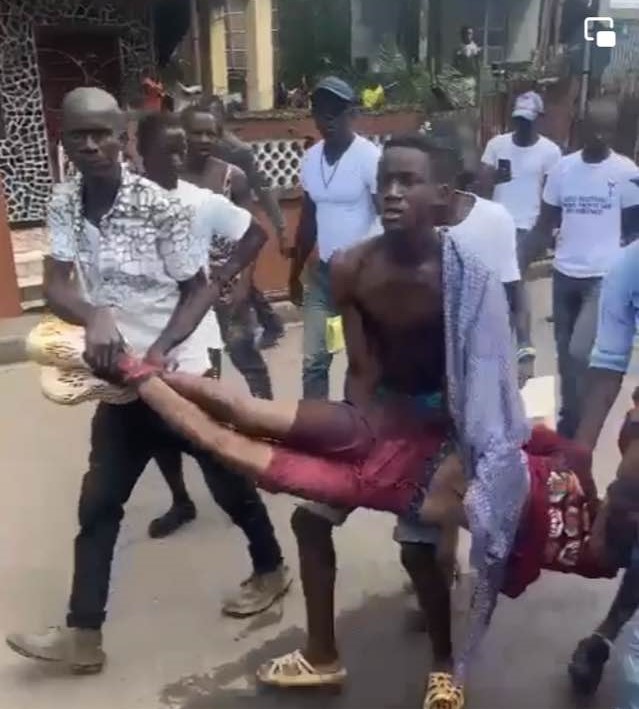
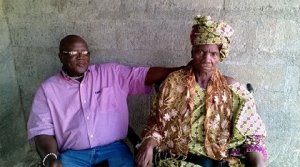
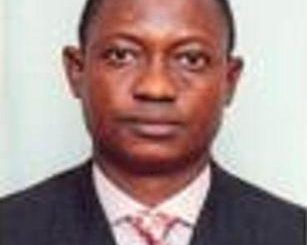
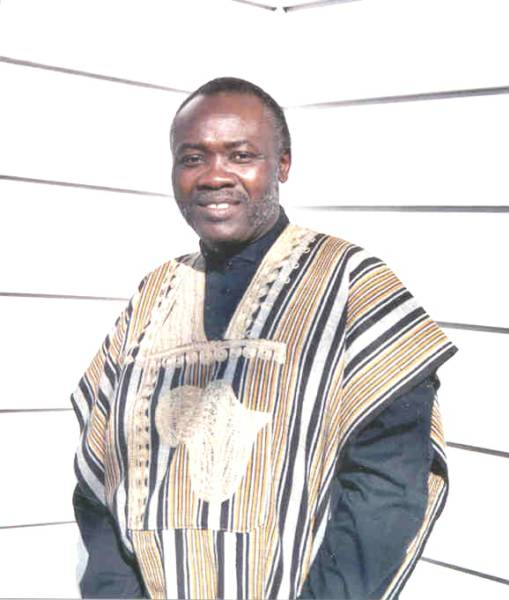
Leave a Reply